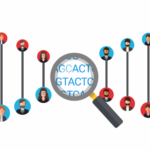Science, development, and security: The Global Biological Resource Centre Network
By Malcolm Dando | October 20, 2010
Sitting at King’s Cross railway station in London, I suddenly became aware that people were looking at me. As a child, I have been told, I always laughed out loud when reading something I enjoyed; I have obviously not lost the habit. On this occasion, I had been reading Jane Johnson’s chapter on “Teaching Ethics to Science Students: Challenges and a Strategy” (in Brian Rappert’s 2010 volume, Education and Ethics in the Life Sciences). My merriment was caused by recognizing in myself many of the characteristics she describes as problematic in teaching ethics to science students. As Johnson puts it, “at the broadest level student difficulties stem from a difference in culture and norms of the humanities and sciences.” She goes on to note that science students are often uncomfortable with philosophy and possibly even have a hostile attitude toward it.
It will be a complex political process that will need considerable governmental involvement to achieve a system acceptable and beneficial to all, and, obviously, a great deal will depend on the governance system that is in place for the final network. Much remains to be done.
Perhaps the best-known expression of the gap between the humanities and the sciences is C.P. Snow’s 1959 Rede Lecture on “The Two Cultures.” Snow, a scientist with much experience in government, was able to bridge that divide. Indeed, the back cover of the 1998 reprint of the lecture includes a blurb from Scientific American: “One cannot fail to take Snow seriously or to recognize his commitment to the cause of peace, intelligent action and human betterment.”
Historian Stefan Collini, in his introduction to the 1998 reprint, noted many of the same themes later outlined by Johnson regarding the rift between the sciences and humanities. “In general,” Collini wrote, “the pressures of competitive research, especially in the natural sciences, tend to relegate engagement with larger cultural or ethical questions to the status of soft options, to be pursued only by those not able to maintain the pace at the cutting edge of research.”
Yet Collini surprised me by pointing out that Snow’s main aim in the lecture was not to illuminate the divide between science and the humanities, but rather to argue that scientists in the developed world must use science and technology to help the developing world progress.
In fact, in Snow’s 1964 reflection on his lecture (“The Two Cultures: A Second Look”), he stated that “before I wrote the lecture I thought of calling it ‘The Rich and the Poor’, and I rather wish that I hadn’t changed my mind.” Snow’s now-famous arguments about the two cultures rather overshadowed what he had really wanted to say about the importance of science and technology to development.
In the half-century since Snow delivered his lecture, we have learned how difficult it is for developing nations to achieve economic success; however, it is possible, and scientists can and must play an important role in the process.
I recently encountered an interesting effort in the scientific community to do just that. In late September, I attended the 12th International Conference on Culture Collections (ICCC-12), sponsored by the World Federation for Culture Collections and held in Florianopolis, Brazil. “Culture collections” are important scientific tools.
Generally speaking, they are holdings of microorganisms — strains of pathogens, bacteria, viruses, algae, or fungi, for example, or tissues — that are made available to scientists and researchers (or simply kept for preservation). The many applications of research based on culture collections include improved food safety, better crop production, and safer water.
There can be no doubt about how important culture collections are to the biotechnology revolution and to bringing economic benefits to the developing world. The Organisation for Economic Co-operation and Development (OECD) recognizes that the security of these culture collections is also vital; to prevent misuse, the OECD provides guidance for best practices. Yet often these culture collections are under-resourced. For example, one presenter at ICCC-12 noted that in his country, “There is no specific official financial support. Many [centers] have personnel qualified in quality management, but very few apply it. In general, they don’t have personnel designated exclusively to maintenance work, which is carried out by investigators, teachers, or professionals, as a secondary activity.”
My impression is that this kind of situation is unfortunately widespread. Both development and security would benefit from enhancing the capabilities of culture collections and upgrading them to international standards as agreed on for biological resource centers (BRCs), which the OECD describes as “one of the key elements for sustainable international scientific infrastructure, which is necessary to underpin successful delivery of the benefits of biotechnology, whether within the health sector, the industrial sector or other sectors, and in turn ensure that these advances help drive growth.” (For more on this, see Danielle Janssens et al., “The Role of Public Biological Resource Centers in Providing a Basic Infrastructure for Microbial Research.”)
To this end, efforts are now being made to set up a Global Biological Resource Centre Network (GBRCN). Other networks operate in this field, but most concentrate on scientific and technical issues and lack a mandate that would enable the implementation of common policies and practices. The goal of the GBRCN is to address this gap. To help achieve this objective, the German Federal Ministry of Research and Education has funded a small secretariat that will coordinate activities designed to demonstrate how the GBRCN will operate “to improve access to high quality biological resources and information to support research and biotechnology as a platform for a knowledge-based bioeconomy.” The activities it coordinates among centers in 15 countries are intended to deliver, for example, “a mechanism for the implementation of OECD Best Practice in BRCs … assessed by independent third parties,” and “a strategy for the GBRCN defining its infrastructure and governance mechanisms, its secretariat’s structure and function with a programme of activities.”
I was particularly struck, in a presentation made at the ICCC-12, by the care that is evidently being devoted to the second of these activities. Given the concerns that have been expressed by some about the possibility of “biopiracy” — the illegal collection of indigenous genetic material by rich world corporations that patent them for their own use — great care has obviously been taken to stress that the GBRCN approach will adhere to stringent regulations. The network will be structured to include “mechanisms to implement agreed principles on ownership and management of Intellectual Property in compliance with national and international legislation,” “a mechanism for capacity building for members,” and “harmonised mechanisms to implement agreed principles of biosafety and biosecurity.”
It will be a complex political process that will need considerable governmental involvement to achieve a system acceptable and beneficial to all, and, obviously, a great deal will depend on the governance system that is in place for the final network. Much remains to be done.
Listening to the presentations at the ICCC-12, it was clear to me that many individuals and institutions in the life sciences are committed to applying their knowledge and skills to the benefit of the developing world and to the global community in general.
C.P. Snow was, of course, best known as a novelist. But I think that if he were alive today, he would watch the process of attempting to set up the GBRCN with great interest, and perhaps some satisfaction.
Together, we make the world safer.
The Bulletin elevates expert voices above the noise. But as an independent nonprofit organization, our operations depend on the support of readers like you. Help us continue to deliver quality journalism that holds leaders accountable. Your support of our work at any level is important. In return, we promise our coverage will be understandable, influential, vigilant, solution-oriented, and fair-minded. Together we can make a difference.
Topics: Biosecurity, Columnists















